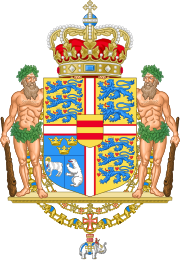Parliamentary committees in the Folketing
 |
|---|
There are thirty standing parliamentary committees in the Folketing, the parliament of Denmark. Standing committees typically have a composition of 29 MPs.
The primary responsibility of these committees is to deliberate on legislative proposals referred for consideration. Additionally, the committees stay abreast of developments within their respective areas, posing inquiries to ministers, who respond either in writing or through oral sessions known as committee hearings (Danish: samråd). Moreover, committees may receive delegations (Danish: "deputationer") from organizations and others.[1]
Current committees[edit]
Standing committees[edit]
Following the 2022 Danish general election, the number of standing committees in the Danish Parliament was expanded from 27 to 30.[1][2][3]
Special committees[edit]
The following parliamentary committees are committees that are not part of the standing committees, but are either select committees or committees whose existence is enshrined in the constitution or other national laws.
| Committee | Chair | Chair's party | Notes | |
|---|---|---|---|---|
| Committee on the Danish Council of Ethics | Flemming Møller Mortensen | Social Democrats | Nominates members and oversees the work of the Danish Council of Ethics. | |
| Epidemics | Monika Rubin | Moderates | The committee's scope of work includes the management of publicly dangerous and socially critical diseases, the Epidemics Act, recommendations from the Epidemic Commission and the Danish Health Authority's epidemic management. | |
| Foreign Policy | Michael Aastrup Jensen | Venstre | A special constitutionally mandated committee, that must be consulted by the government "in matters of major importance to foreign policy". The work of the committee is confidential. | |
| Intelligence Services | Jens Henrik Thulesen Dahl | Denmark Democrats | Supervises the Danish Security and Intelligence Service and the Danish Defence Intelligence Service. The work of the committee is confidential. | |
| Scrutiny | Ole Birk Olesen | Liberal Alliance | Has the power to initiate a parliamentary commission of scrutiny. | |
| Subcommittee of the Standing Orders Committee | Handles matters of ministerial responsibility, especially after a commission of inquiry. It assesses findings, hears the minister, and submits a statement or draft report to the Standing Orders Committee, potentially leading to political disapproval or recommending impeachment proceedings if legal liability is found. | |||
| Supervisory Board in accordance with Section 71 of the Constitution | Peter Juel-Jensen | Venstre | Oversees non-judicial deprivation of liberty cases, excluding criminal law matters. It receives notifications from various sources, conducts inquiries, and may visit institutions. | |
References[edit]
- ^ a b "About the parliamentary committees". The Danish Parliament. 2019-01-31. Retrieved 2023-12-11.
- ^ "Her er medlemmerne af Folketingets udvalg". Altinget.dk. 2023-01-05. Retrieved 2023-12-11.
- ^ "Committees". The Danish Parliament. 2016-11-21. Retrieved 2023-12-11.
